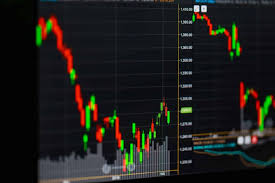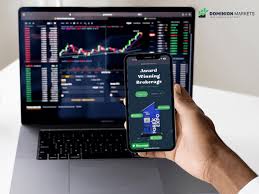
Unlock Your Potential: Comprehensive Forex Trading Courses
If you’re looking to master the Forex market and make informed trading decisions, enrolling in a forex trading course is an excellent first step. Whether you are a complete beginner or an experienced trader aiming to refine your skills, the right course can provide you with the knowledge and strategies needed to succeed in this dynamic environment. For more resources, visit forex trading courses https://exbroker-turkiye.com/.
Understanding Forex Trading
The foreign exchange (Forex) market is the largest and most liquid financial market in the world. It operates 24 hours a day, five days a week, allowing traders to engage in currency trading across different time zones. Understanding the fundamentals of this market is crucial for anyone looking to trade currencies.
What is Forex Trading?
Forex trading involves buying one currency while simultaneously selling another. Currency pairs, such as EUR/USD or GBP/JPY, are traded in this manner. The goal is to speculate on whether the value of a currency will rise or fall against another, enabling traders to profit from these fluctuations.
Key Players in the Forex Market
Several key players participate in the Forex market, including central banks, financial institutions, corporations, and individual retail traders. Understanding the roles these players have in the market can help you navigate Forex trading more effectively.
Benefits of Taking a Forex Trading Course
Investing time in a proper Forex trading course provides numerous advantages, especially if you’re new to trading. Here are some essential benefits:
1. Structured Learning
A well-structured course offers a clear learning path, guiding you through the important concepts and strategies essential for Forex trading. This structured approach saves time and prevents confusion.

2. Expert Insights
Most Forex trading courses are taught by experienced traders or industry professionals who can provide valuable insights and practical tips based on real-world experience. Learning from these experts can significantly enhance your trading knowledge.
3. Risk Management Strategies
Risk management is crucial in Forex trading. A good course will teach you various risk management strategies, including how to set stop-loss orders, position sizing, and leveraging correctly. Understanding these concepts can protect your capital and improve your overall trading performance.
4. Community Support
Many Forex trading courses offer access to a community of traders. This network can be an invaluable resource for sharing experiences, asking questions, and gaining insights from fellow learners. The support system helps motivate you to stay dedicated to your trading journey.
Types of Forex Trading Courses
When considering a Forex trading course, it’s important to understand the different types available. Here are some common formats:
1. Online Courses
Online Forex trading courses have become increasingly popular due to their flexibility. You can learn at your own pace, access materials anytime, and often interact with instructors and fellow learners through forums and live chats.
2. In-Person Workshops
In-person workshops provide a more interactive learning experience, allowing you to engage with instructors directly. These workshops can also offer networking opportunities with other traders, enhancing your learning experience.
3. Webinars

Webinars are a convenient way to learn from experts in real-time. They often cover specific topics and allow for Q&A sessions, providing immediate feedback on your queries.
Choosing the Right Forex Trading Course
With so many courses available, it can be challenging to select the right one for your needs. Here are some tips for making the best choice:
1. Define Your Goals
Clearly outline your goals for trading. Are you looking to trade full-time or part-time? Understanding your objectives will help you choose a course that aligns with your aspirations.
2. Research Course Content
Examine the curriculum of the courses you’re considering. Look for topics such as technical and fundamental analysis, trading strategies, and psychological aspects of trading. Ensure that the content covers both the basics and advanced concepts.
3. Check Reviews and Testimonials
Read reviews and testimonials from past participants to gauge the quality of the course. Look for feedback regarding the instructor’s expertise, the course material, and the overall learning experience.
4. Evaluate Costs
Consider your budget when choosing a course. While quality education often comes at a price, be wary of courses that seem unusually cheap or expensive without a clear justification. Look for courses that offer good value for money.
Conclusion
Enrolling in a Forex trading course can vastly improve your understanding of the market and enhance your trading skills. Whether you choose an online course, a webinar, or an in-person workshop, the knowledge you gain can provide a solid foundation for your trading journey. Remember, successful Forex trading takes time, practice, and continuous learning, so invest in your education wisely and stay committed to your goals.
